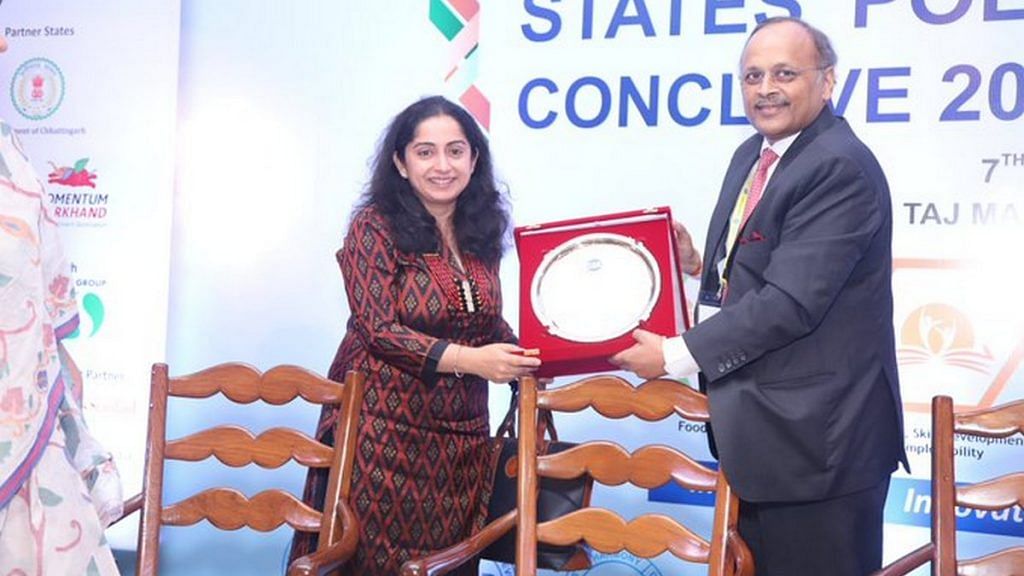New Delhi: Conducting a SWOT analysis of sorts for various Indian states can help contribute towards making India a $5 trillion economy, according to Shamika Ravi, member of the PM’s Economic Advisory Council.
Ravi said mapping the strengths and economic trajectories of each state can help them learn from each other, and also help policy makers.
She was speaking at the States’ Policy Conclave 2019 organised by the PHD Chamber of Commerce & Industry, aimed at strengthening the interface between the government and industry, and looking at how states can be empowered to kick-start the country’s growth.
Break-out states
Ravi highlighted what she considers “break-out” states — those that have grown at a pace that has defied expectations.
“Andhra Pradesh, Gujarat, Telangana, Sikkim, Jharkhand — each of these states has a very specific vision for the future. If one looked at their growth trajectory, one would realise they have gone much beyond the expected average growth rate,” she said.
However, she also highlighted how Punjab has fallen behind in the last couple of years.
“Punjab was the third richest state in the country in 2000. Today, it has the same per capita income as Nagaland,” Ravi said. “Punjab has lost a lot of its small industries to its neighbours in recent years. We need to modernise the agriculture in the state and make the forward-linkages necessary for an economy dependent on agriculture.”
Ravi also talked about the need for states to bring in development strategies that improve the quality of life.
“In 1992, Andhra Pradesh and Uttar Pradesh were very similar. Both had very high poverty rates and both were largely agrarian,” she said. “In 15 years’ time, while Uttar Pradesh did lower its poverty rate to an extent, Andhra Pradesh’s poverty rate went from 48 per cent to 11 per cent. This means implementing good developmental policies is important.”
Mismatch between degrees and market demands
Ravi said the staggering number of unemployed graduates in India is a sign that there is a fundamental mismatch between the degrees that are granted and the skill sets the market demands. This, she added, should teach policy makers many important lessons.
“This tells us that we must do a better job at managing our expectations. Just because one has a degree doesn’t mean they also have the skill sets the market is looking for,” she said.
According to Ravi, the many skilling programmes in India must add certification and provide degrees that can help participants procure jobs. “The ‘Skill India’ programmes must ensure that they are providing the kind of skills that the market demands,” she said.
However, she added that India must not give up on improving the education sector.
“Skilling programmes are essentially making up for the education sector. We need to make sure the education sector inculcates basic skills in students at a young age: Finishing the job that you are assigned, maintaining hygiene… These are all matters of discipline that must be taught,” Ravi said.
MSMEs as job creators
G. Kishan Reddy, Minister of State for Home Affairs was the chief guest at the conclave, and gave a speech towards the end stressing the potential of the micro, small and medium enterprises (MSME) sector.
“The MSME sector has potential of generating employment opportunities and inviting foreign investors to India with the improved ease of doing business,” Reddy said.
ThePrint is the Digital Media Partner of the event.
